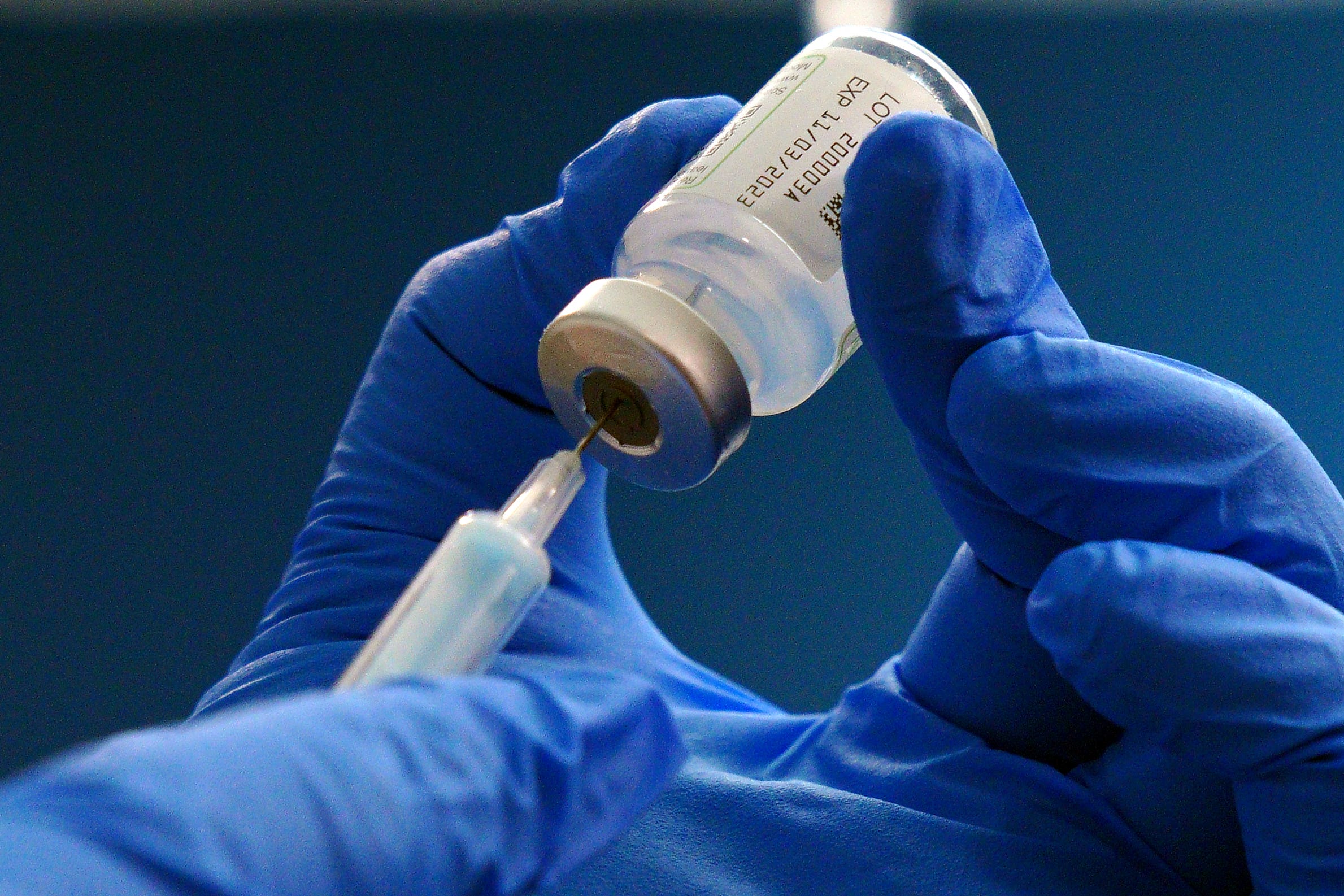Scientists identify gene associated with strong immune response to Covid jabs
Those who carry the HLA-DQB1*06 gene may generate a higher antibody response than those who do not, scientists say.

Your support helps us to tell the story
From reproductive rights to climate change to Big Tech, The Independent is on the ground when the story is developing. Whether it's investigating the financials of Elon Musk's pro-Trump PAC or producing our latest documentary, 'The A Word', which shines a light on the American women fighting for reproductive rights, we know how important it is to parse out the facts from the messaging.
At such a critical moment in US history, we need reporters on the ground. Your donation allows us to keep sending journalists to speak to both sides of the story.
The Independent is trusted by Americans across the entire political spectrum. And unlike many other quality news outlets, we choose not to lock Americans out of our reporting and analysis with paywalls. We believe quality journalism should be available to everyone, paid for by those who can afford it.
Your support makes all the difference.Scientists from the University of Oxford have identified a gene associated with strong immune response following Covid-19 vaccination.
The researchers found that people who carry a version of an HLA gene known as HLA-DQB1*06 are more likely to generate a higher antibody response after getting their jab than those who do not.
The effect was seen in both Pfizer/BioNTech as well as Oxford/AstraZeneca vaccines, the experts said.
The team said their findings, published in the journal Nature Medicine, could in future improve vaccines and help prevent infection.
Dr Alexander Mentzer, NIHR academic clinical lecturer at the Wellcome Centre for Human Genetics and a lead researcher on the study, said: “We have seen a wide variation in how quickly people test positive for Covid-19 after vaccination.
“Our findings suggest that our genetic code may influence how likely this is to happen over time.
We hope that our findings will help us improve vaccines for the future so they not only stop us developing severe disease, but also keep us symptom-free for as long as possible
“We hope that our findings will help us improve vaccines for the future so they not only stop us developing severe disease, but also keep us symptom-free for as long as possible.”
The team analysed DNA samples from 1,190 participants enrolled in the University of Oxford’s vaccine clinical trials, as well as from 1,677 adults who had enrolled on the Com-COV research programme.
They also looked at samples from children who had participated in clinical trials for the AstraZeneca vaccine.
The researchers found individuals carrying the HLA-DQB1*06 gene recorded higher antibody responses against the Covid-19 vaccines at 28 days following the first dose.
Participants who had the gene were also less likely to experience breakthrough infection – where people still get infected with coronavirus despite being vaccinated.
Around 30-40% of people in the UK are thought to carry the HLA-DQB1*06 gene.
Julian Knight, professor of genomic medicine at the University’s Wellcome Centre for Human Genetics and chief investigator on the study, said: “Further work is needed to better understand the clinical significance of this specific association, and more broadly what identifying this gene variant can tell us about how effective immune responses are generated and ways to continue to improve vaccines for everyone.”
The findings come as Covid-19 booster doses become available to over 50s on Friday – with 26 million people in England being eligible for the autumn jab.
A majority of them will be offered the newer bivalent vaccine which targets the original Covid-19 variant and the newer Omicron one.